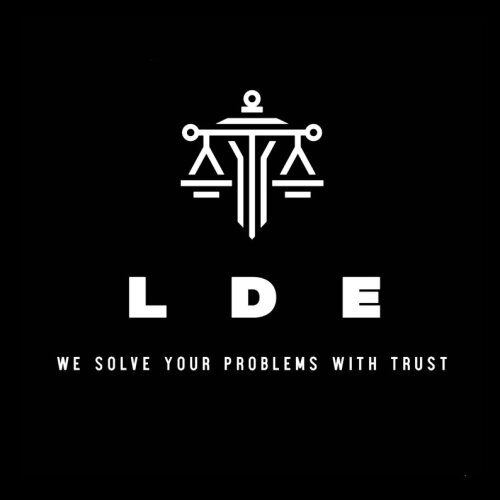Best ESG Advisory & Compliance Lawyers in Islamabad
Share your needs with us, get contacted by law firms.
Free. Takes 2 min.
List of the best lawyers in Islamabad, Pakistan
About ESG Advisory & Compliance Law in Islamabad, Pakistan
Environmental, Social, and Governance (ESG) Advisory and Compliance law has become an increasingly important area for businesses and organizations operating in Islamabad, Pakistan. ESG refers to a set of standards for a company’s operations that socially conscious investors use to screen potential investments. In Islamabad, with growing awareness of global best practices, companies are expected to operate sustainably, respect human rights, practice transparency, and manage environmental risks. ESG advisory and compliance law helps ensure organizations meet both local and international standards, mitigating legal, reputational, and financial risks.
Why You May Need a Lawyer
Seeking legal assistance in ESG advisory and compliance is crucial because the regulatory environment is evolving rapidly. A lawyer can assist in the following scenarios:
- Drafting and reviewing ESG policies and frameworks for your business or organization
- Ensuring compliance with Pakistani environmental, labor, and corporate governance laws
- Navigating complex reporting and disclosure requirements required by regulators and investors
- Addressing legal challenges arising from non-compliance with ESG standards
- Advising on risk mitigation and internal controls for ESG practices
- Managing stakeholder disputes involving environmental or social grievances
- Supporting businesses in integrating ESG criteria into investment decisions
Legal experts bring clarity, help prevent violations, and protect organizations from penalties or legal disputes that may arise due to lapses in ESG compliance.
Local Laws Overview
In Islamabad, ESG compliance is guided by several key regulations, policies, and frameworks. The primary laws and standards affecting ESG include:
- Environmental Regulations: The Pakistan Environmental Protection Act, 1997 empowers the Pakistan Environmental Protection Agency (Pak-EPA) to regulate waste management, emissions, and the environmental impact of businesses. Project proponents are required to conduct Environmental Impact Assessments (EIA) before starting certain activities.
- Social Regulations: The provincial labor laws and workplace safety regulations, such as the Factories Act, 1934 and Shops and Establishments Ordinance, set forth guidelines for employee welfare, health, safety, and equal opportunities.
- Governance Standards: The Securities and Exchange Commission of Pakistan (SECP) requires listed companies to comply with the Listed Companies (Code of Corporate Governance) Regulations, focusing on transparency, board structure, and shareholder rights.
- Reporting and Disclosure: Certain corporate entities may need to disclose their ESG practices and risks as part of annual financial reporting, in line with guidelines from SECP and international standards.
Islamabad, being the administrative capital, often sets the benchmark for ESG compliance that businesses across the country may follow. Non-compliance can lead to fines, business delays, and reputational harm.
Frequently Asked Questions
What is ESG compliance and why is it important for businesses in Islamabad?
ESG compliance refers to adhering to environmental, social, and governance standards in business operations. In Islamabad, building trust with investors, avoiding regulatory fines, and meeting consumer expectations are key reasons for its importance.
Are there any mandatory ESG reporting requirements for companies in Islamabad?
While comprehensive ESG reporting is not yet mandatory for all companies, listed firms are increasingly encouraged to disclose ESG information. Sector-specific requirements may apply for environmental impact assessments or labor standards.
Which authority regulates environmental standards for businesses in Islamabad?
The Pakistan Environmental Protection Agency (Pak-EPA) is the key regulator overseeing environmental compliance, including waste management, emissions, and environmental impact assessments.
How can a lawyer help my company develop an ESG strategy?
A lawyer can help interpret regulations, draft policies, set up compliance programs, and train employees. They can ensure your ESG strategy aligns with local laws and international best practices.
What are the consequences of failing to comply with ESG regulations?
Consequences can include fines, criminal liability, legal actions, suspension of business licenses, and damage to your company’s reputation among investors and stakeholders.
Can foreign investors demand ESG compliance from Pakistani businesses?
Yes, foreign investors often require Pakistani businesses to comply with specific ESG standards to align with global investment criteria and risk management protocols.
Are ESG laws the same across all cities in Pakistan?
While federal laws apply nationwide, some regulations and enforcement may vary by province or administrative area. Islamabad, as a federal territory, adheres closely to central government policies and standards.
What is an Environmental Impact Assessment (EIA), and when is it required?
An EIA is a process to evaluate the environmental implications of a proposed project before it begins. It is required for projects likely to have significant environmental impacts, as prescribed under the Pakistan Environmental Protection Act.
How do labor and human rights considerations fit into ESG compliance?
Social aspects of ESG address employee welfare, workplace safety, anti-discrimination, fair wages, and safeguarding rights under laws such as the Factories Act and relevant labor ordinances.
What steps should I take if my business is accused of violating ESG standards?
You should consult with a legal professional immediately to assess the allegation, gather relevant documentation, and develop a response strategy. Compliance audits and remedial actions may also be recommended.
Additional Resources
Individuals and organizations seeking further information or guidance on ESG advisory and compliance in Islamabad can contact or consult with the following:
- Pakistan Environmental Protection Agency (Pak-EPA)
- Securities and Exchange Commission of Pakistan (SECP)
- Islamabad Chamber of Commerce and Industry (ICCI)
- Pakistan Institute of Corporate Governance
- Relevant law firms and ESG consultancy agencies based in Islamabad
- NGOs working on environmental and social justice in Pakistan
These organizations provide regulatory updates, training, compliance tools, and referrals for professional legal assistance.
Next Steps
If you need legal assistance in ESG advisory and compliance in Islamabad, here are recommended steps:
- Assess your organization’s current ESG policies and identify any areas of concern or potential risk
- Document your compliance efforts and challenges experienced so far
- Consult with a qualified lawyer experienced in ESG advisory and Pakistani regulations
- Prepare questions or objectives to guide your legal consultation
- Stay updated with local regulatory changes and developments in ESG standards
Taking these steps will ensure your organization is proactive, compliant, and prepared to navigate the evolving ESG landscape in Islamabad, Pakistan.
Lawzana helps you find the best lawyers and law firms in Islamabad through a curated and pre-screened list of qualified legal professionals. Our platform offers rankings and detailed profiles of attorneys and law firms, allowing you to compare based on practice areas, including ESG Advisory & Compliance, experience, and client feedback.
Each profile includes a description of the firm's areas of practice, client reviews, team members and partners, year of establishment, spoken languages, office locations, contact information, social media presence, and any published articles or resources. Most firms on our platform speak English and are experienced in both local and international legal matters.
Get a quote from top-rated law firms in Islamabad, Pakistan — quickly, securely, and without unnecessary hassle.
Disclaimer:
The information provided on this page is for general informational purposes only and does not constitute legal advice. While we strive to ensure the accuracy and relevance of the content, legal information may change over time, and interpretations of the law can vary. You should always consult with a qualified legal professional for advice specific to your situation.
We disclaim all liability for actions taken or not taken based on the content of this page. If you believe any information is incorrect or outdated, please contact us, and we will review and update it where appropriate.

















